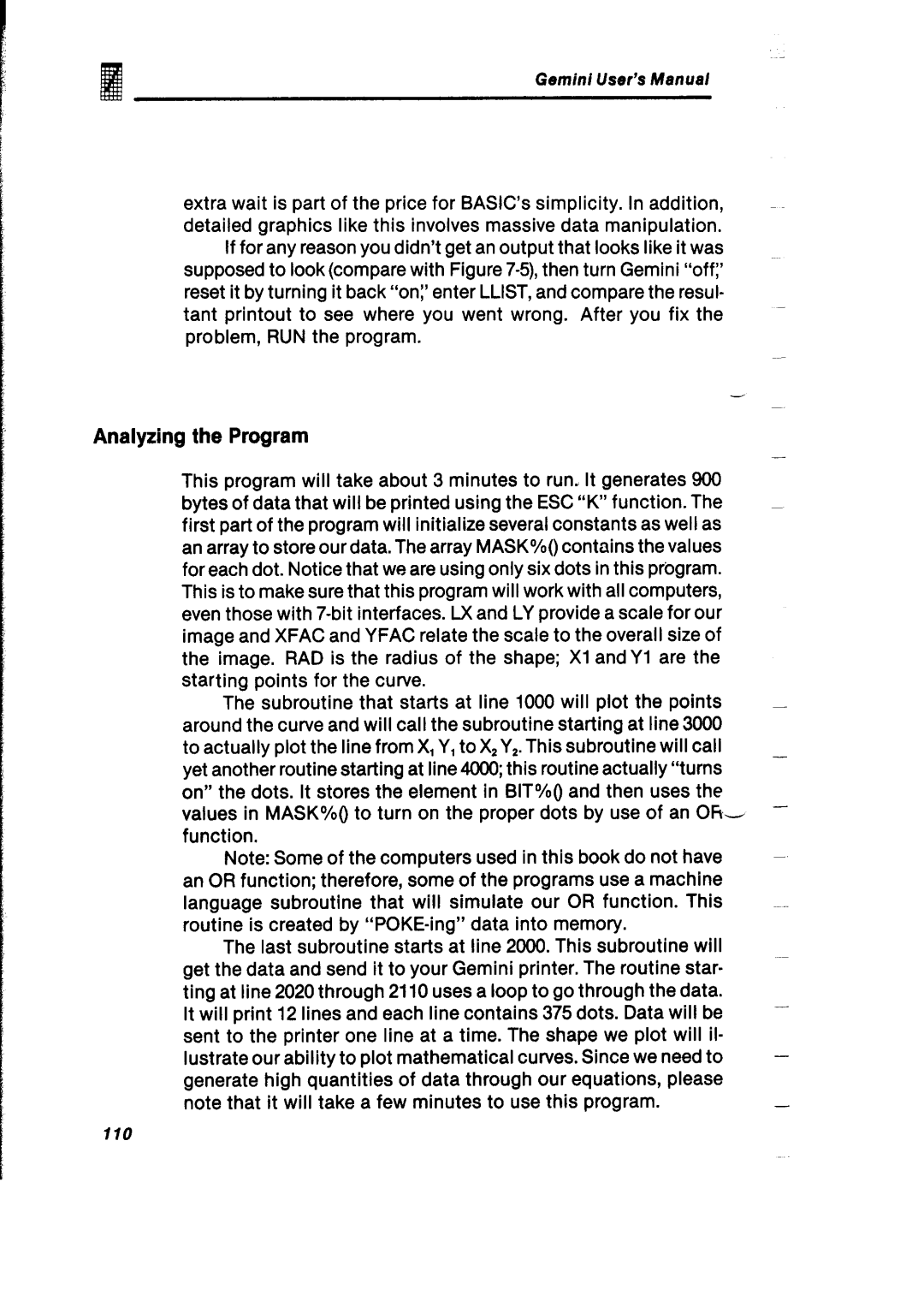
Gemini User’s Manual
extra wait is part of the price for BASIC’s simplicity. In addition, detailed graphics like this involves massive data manipulation.
If for any reason you didn’t get an output that looks like it was supposed to look(compare with Figure
tant printout to see where you went wrong. After you fix the problem, RUN the program.
Analyzing the Program
-
This program will take about 3 minutes to run. It generates 900 |
| ||||
bytes of data that will be printed using the ESC “K”function. The |
| ||||
first part of the program will initialize several constants as well as |
| ||||
an array to store our data. The array MASK%0 contains the values |
| ||||
for each dot. Notice that we are using only six dots in this program. |
| ||||
This is to make sure that this program will work with all computers, |
| ||||
even those with |
| ||||
image and XFAC and YFAC relate the scale to the overall size of |
| ||||
the image. RAD is the radius of the shape; Xl andY1 are the |
| ||||
starting points for the curve. |
|
|
|
| |
The subroutine | that starts at | line | 1000 will plot the points | _ | |
around the curve and will call the subroutine starting at line 3000 |
| ||||
to actually plot the line from X, Y, to X,Y,. This subroutine will call |
| ||||
yet another routine starting at line 4000;this routine actually “turns | - | ||||
on” the dots. It stores the element in BIT%0 and then uses the |
| ||||
values in MASK%0 | to turn on the | proper dots | by use of an OR- | - | |
function. |
|
|
|
|
|
Note: Some of the computers | used in this | book do not have | - | ||
an OR function; therefore, some of the programs use a machine |
| ||||
language subroutine that will simulate our OR function. This |
| ||||
routine is created by |
| ||||
The last subroutine starts at line 2000. This subroutine will |
| ||||
get the data and send it to your Gemini printer. The routine star- |
| ||||
ting at line 2020 through 2110 uses a loop to go through the data. |
| ||||
It will print 12 lines | and each line contains 375 dots. Data will be | - | |||
sent to the printer one line at a time. The shape we plot will il- |
| ||||
lustrate our ability to plot mathematical | curves. Since we need to | - | |||
generate high quantities of data through our equations, please |
| ||||
note that it will take a few minutes | to | use this | program. | - | |
